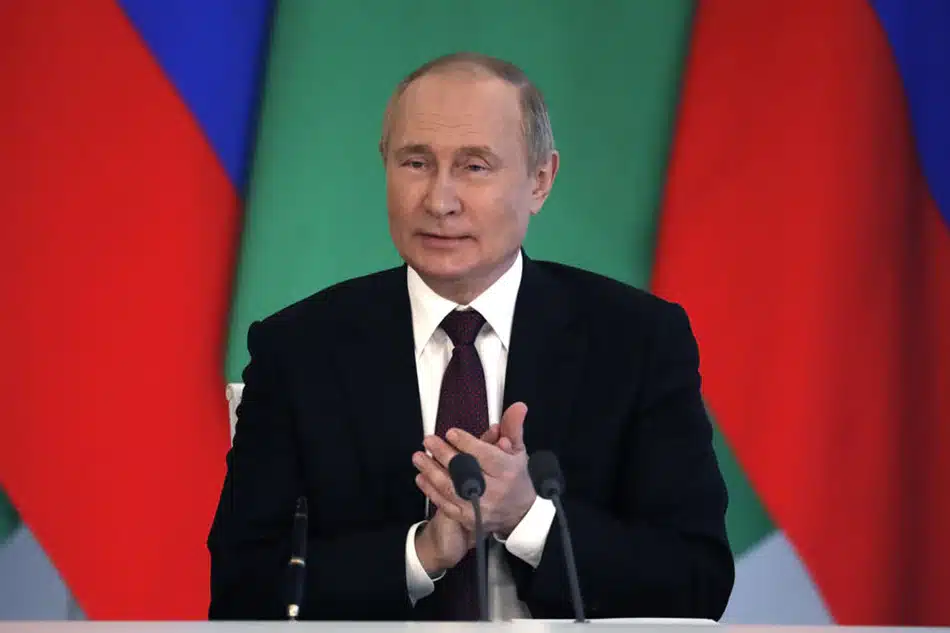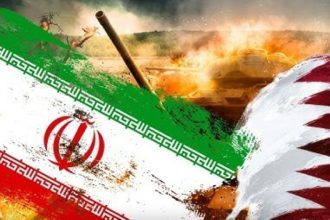On Tuesday, the United States and its allies heaped pressure on Russia to end the Ukraine war, using a G20 summit to pin painfully high global food and fuel prices squarely at President Vladimir Putin’s door.
Eyeing a joint G20 declaration that would condemn Russia’s eight-month-old invasion and threats to use nuclear weapons, US and European officials painted the summit in Bali as evidence of Russia’s deepening isolation.
“I think you’re going to see most members of the G20 make clear that they condemn Russia’s war in Ukraine,” a senior US official said, speaking anonymously.
“Russia’s war of aggression is being condemned in the strongest possible terms,” adding that many “see Russia’s war in Ukraine as the root source of immense economic and humanitarian suffering in the world.”
It remained far from clear that Russia’s G20 allies China, India and South Africa would sign up for language that would condemn Putin’s war so explicitly.
Such a condemnation at the G20 would be a heavy diplomatic defeat for Moscow, which has been keen to paint opposition to the conflict as Western-dominated.
There was a hint at growing Chinese unease with Russia’s prosecution of the war, though, when presidents Xi Jinping and Joe Biden met late Monday.
Both men voiced opposition to the “use or threat of use” of nuclear weapons in Ukraine, according to a White House account of the meeting.
European Council president Charles Michel signaled that while a draft agreement had been agreed to in principle, there was still work to be done.
“I am convinced that we should try to use the meeting today and tomorrow to convince all of the parties to put more pressure on Russia,” he told media as the summit opened.
G20 leaders are gathered in Bali as soaring inflation drives millions more into poverty and tips several nations toward recession.
“Every household on the planet is feeling the impact of Putin’s war,” British officials said, previewing Prime Minister Rishi Sunak’s remarks.
US allies hope that argument finds favor with G20 nations that, while cautious about denouncing Russia, are deeply concerned about rising prices.
G20 members Argentina and Turkey are among the countries worst hit by food inflation, while India and South Africa have avoided criticism of Moscow.
Putin has decided to skip the summit as he deals with the fallout from a string of embarrassing battlefield defeats in a war that his supporters believed would be over in days.
Rubbing salt in the wound, Ukrainian leader Volodymyr Zelensky — fresh from a visit to liberated Kherson — will address G20 leaders in a video message.
In Putin’s sted, Russia is represented by Sergei Lavrov, despite the veteran foreign minister making two Bali hospital trips in as many days for an undisclosed ailment.
Moscow denied the top diplomat had been hospitalized.
Although a seasoned and pugilistic diplomat, Lavrov is not seen as part of Putin’s inner circle — meaning the chance of a diplomatic breakthrough to end the war is vanishingly small.
With Zelensky and Putin absent, “there is little chance of any real peace diplomacy in Bali,” said Richard Gowan of the International Crisis Group.
Still, French President Emmanuel Macron has kept an olive branch extended. According to a senior French official, he will call Putin after the G20 summit.
Grain corridor
An expiring deal allowing Ukraine to export grain through the Black Sea is likely to be another focus of the conversation.
The deal ends on November 19, and Russia has already threatened to rip it up.
On Monday, United Nations Secretary-General Antonio Guterres voiced hope that Russia would extend, saying the arrangement was crucial for food security.
“I am hopeful that the Black Sea grain initiative will be renewed,” Guterres said.
Ukraine is one of the world’s top grain producers, and the Russian invasion had blocked 20 million tonnes of grain in its ports before the United Nations, and Turkey brokered the deal in July.
“We need urgent action to prevent famine and hunger in a growing number of places around the world,” Guterres said.
The summit build-up has focused on Xi, on only his second overseas trip since the pandemic.
He meets Tuesday with French President Emmanuel Macron and Australia’s Anthony Albanese, a day after a first presidential sitdown with Biden.
The pair cooled Cold War rhetoric in a three-hour summit as they tried to take some heat out of their simmering superpower rivalry.
“The world expects China and the United States to handle the relationship properly,” Xi told Biden.
Former US diplomat Danny Russel described the meeting as broadly positive.
“We should beware of prematurely declaring the strategic rivalry over. Instead, we saw a deliberate effort to stabilize a dangerously overheated relationship. (AFP)






